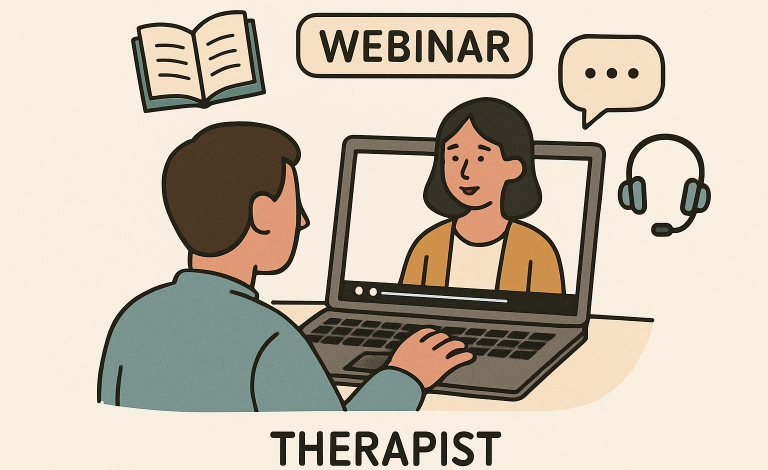The Future of CPD in Psychotherapy: What Therapists Need to Know

Continuous Professional Development (CPD) remains a pillar of excellence for therapists navigating a rapidly evolving landscape in psychotherapy. As new challenges and opportunities emerge, maintaining a commitment to growth and skill enhancement isn’t just a best practice—it’s a necessity for ethical and practical care. Innovative organizations such as The Greenane Centre are setting the standard in supporting practitioners with accessible, relevant, and inspiring CPD options. For therapists, lifelong learning is more than regulatory compliance—it’s about continually refining one’s expertise to respond meaningfully to client needs. As expectations shift and new therapeutic approaches emerge, understanding how to leverage CPD in this context is crucial for maintaining professional relevance and success.
The Importance of CPD in Psychotherapy
Beyond simply fulfilling licensing or registration requirements, CPD in psychotherapy is about intentional, reflective practice. High-quality CPD equips therapists to integrate the latest research, adapt to updated ethical guidelines, and address the complexity of mental health presentations with confidence. Professional associations, such as the British Association for Counselling and Psychotherapy, recommend a minimum of 30 hours of varied CPD annually, spanning workshops, seminars, reading, peer discussion, and active engagement in learning networks. Crucially, robust CPD ensures the therapist-client relationship remains practical and relevant. Therapists regularly involved in ongoing education demonstrate higher job satisfaction, more precise ethical boundaries, and a greater ability to adopt evidence-based modalities, as supported by research featured on Psychology Today. Moreover, CPD fosters professional resilience by equipping practitioners with new strategies to manage burnout and compassion fatigue. It also provides a platform for therapists to connect with peers, share experiences, and build supportive professional networks. Ultimately, CPD is not just a requirement but an investment in both professional growth and client well-being.
Technological Advancements in CPD Delivery
The digital transformation has caused a surge in online learning options for therapists. Webinars, virtual conferences, and self-paced e-learning have made continuing professional development (CPD) more accessible, enabling practitioners to learn regardless of their location or work schedule. Major mental health conferences and specialized groups now offer online sessions, creating more chances for engagement and networking. Flexibility is a key feature of this digital shift. Therapists can now take short courses to expand their skills in specific areas or participate in interactive, live-streamed workshops that promote real-time discussion. Mobile apps and learning management systems have further improved access—therapists no longer need to travel or take time off work to meet their requirements. These new digital methods of continuing education are linked to better knowledge retention and higher professional satisfaction.
Embracing Digital Tools for Enhanced Learning
The rise of immersive technology is transforming how therapists approach skill acquisition. Virtual reality (VR) platforms offer simulated environments where practitioners can practice therapeutic interventions, managing complex scenarios and ethical dilemmas with the safety of virtual feedback. These realistic simulations drive faster skill mastery and improved experiential learning. Additionally, peer learning communities and discussion forums offer therapists spaces to share experiences, case studies, and best practices. This kind of collaborative digital learning promotes innovation and real-world problem-solving, ensuring therapists remain adaptable in their approach.
Staying Informed About Emerging Trends
The future of psychotherapy is deeply intertwined with emerging technologies. Artificial intelligence (AI) is on the rise, offering tools for diagnostic support, outcome measurement, and even chatbot-led therapeutic interventions. Meanwhile, teletherapy has become a permanent fixture, requiring therapists to update their skills in digital communication, privacy, and the nuances of building rapport remotely. Furthermore, the spread of new therapeutic modalities—such as trauma-informed care, neurodiversity-affirming therapy, and culturally responsive practices—demands ongoing engagement with the latest clinical literature and debate. Interdisciplinary CPD is gaining traction, bringing together experts in psychology, neuroscience, and digital health to foster more holistic care models.
Integrating Personal Growth into Professional Development
Therapists committed to personal growth enjoy more resilient careers and stronger therapeutic relationships. Reflective practice, supervision, and even engaging in personal therapy are vital forms of CPD that enhance empathy, insight, and presence. Personal growth underpins professional effectiveness—it nurtures self-awareness and emotional regulation, which are essential qualities for any practitioner aiming to offer transformative care. The synthesis of technical competence and self-reflection ensures that therapists can meet the ever-changing needs of their clients with authenticity and skill. By choosing CPD pathways that foster both knowledge and personal development, practitioners reinforce their passion and sense of purpose.
Conclusion
The landscape of CPD in psychotherapy is dynamic, rich with opportunities for therapists to rise and thrive amid ongoing change. Harnessing technological advancements, engaging with emerging trends, and prioritizing personal growth are non-negotiables for future-focused practitioners. With the support of forward-thinking organisations and robust resource networks, therapists can remain at the forefront of effective, ethical, and compassionate care—ensuring the profession continues to make a meaningful impact in a complex world.

